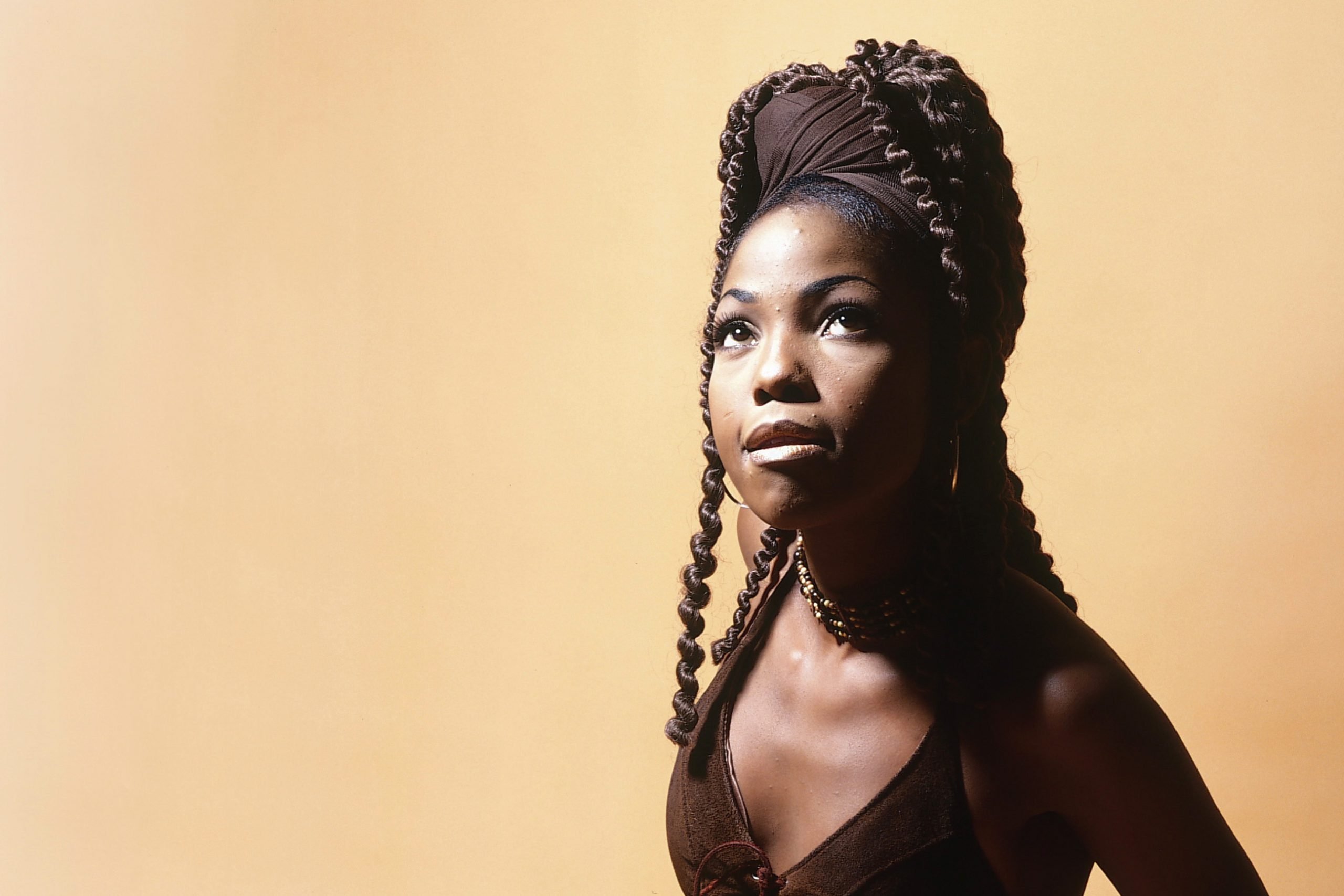The fantasy and freedom of Lebo Mathosa’s ‘Dream’
Lebo Mathosa’s debut offering bent genres and freed the imagination. Twenty years after its release, the album and its legacy deserve to be taken far more seriously.
Author:
10 February 2020

Many songs before South Africa’s democracy were explicitly political. This was obviously inspired by the anti-apartheid movement and more particularly the cultural boycotts that intensified in the 1980s. Freedom songs became the soundtrack of heightened resistance. This culture continues to penetrate South Africa’s music scene – in between anthems that invite shameless debauchery, especially during the festive season.
In cultural journalism, the music concerned with freedom is usually extensively explored.
But often black artists are only looked at through a political lens – a tendency that implies music doesn’t exist for any other reason. This isn’t to take away from the deliberateness with which artists insert their work within a political context. The world is broken, and the fact that some of the best and most visible musicians are in tune with this reality with sensitivity is reassuring. The most iconic of South African artists have helped us better understand feminist and political theory through music. They have been witnesses to history. But to write about music solely through this lens limits us from further grappling with its meaning.
Not everything that black artists create is necessarily solely political. So how do we write about music without only considering its politics? Can we momentarily park, or decentre, the political and focus our attention on the ways pop artists were sonically experimenting with various influences, from production to vocals? Can we do this with as much enthusiasm as we do with some of jazz’s greatest virtuosos to begin to appreciate the power popular music has in creating new possibilities?
The internal world of Dream
Twenty years ago Lebo Mathosa emerged as a solo artist with her debut Dream. The recent BET Africa biopic, Dream: The Lebo Mathosa Story, offers us a glimpse into the life and times of the self-proclaimed “drama queen” Mathosa. The mini-series concerns itself with an artist who is fresh out of Boom Shaka, a group that burst onto the scene like a wrecking ball with its rejection of respectability politics, taking up space as the voice of the youth ready to enjoy the spoils of freedom. She was on a mission to make a name for herself, outside of the group.
On Mathosa’s solo album, we see her hit the brakes on the political and begin to focus on the internal. Revisiting the work 20 years later and unbundling black art from the political for a moment allows us to look specifically at the music and the ways Mathosa played with genre – a characteristic of kwaito music.
The gems on this debut find expression in the global at a moment when artists across the world were merging sounds and styles. The threat of the Y2K virus and the anxiety of the unknown presented by the new millennium seemed to fuel black artists in particular to imagine various possibilities.
Of course, this isn’t new. Miriam Makeba brought isiXhosa to the global stage while wearing Fulani-style braids and Kikuyu neckpieces. Makeba even persuaded Nina Simone to sing a rendition of Caiphus Semenya’s West Wind, a song written in honour of the wave of independence that swept Africa 60 years ago.
This history comes to mind when listening to Dream beyond the sense that Mathosa had career ambitions outside South Africa. She was clearly gearing herself towards becoming a global star.
Breaking with convention
Mathosa’s genre-bending album is a masterclass in musical genius, reflecting an artist who divested herself of musical convention. The album sees Mathosa chart the waters of the surrealism invoked by the title. She achieves this through instrumentation, lyricism and the power of her pipes. The way she uses her voice submerges her listener in various fantasies, commanding the inner creative in all of us to imagine anew. This can be easily missed.
She was perceived as the quintessential “party girl” who, as culture journalist Charl Blignaut wrote, “would make headlines for getting into a fight at a club or sleeping with women, but she was incredibly hard-working, she didn’t really use drugs, everyone will tell you so. I think the bad girl tag is all about her claiming her sexuality, owning her body, living her political truth”. But it is precisely Mathosa’s persona that points us towards what historian Robin DG Kelley argues in Freedom Dreams: The Black Radical Imagination: fantasy, desire and revolt give birth to true life, quoting Paul Garon’s claim that “fantasy alone enables us to envision the real possibilities or human existence” and “tells us what can be”.
Letta Mbulu’s classic There’s Music in the Air gently nudges us to look for love in the music, to bask in the melody. This is an invitation to dream, an invitation Mathosa passed on to her generation of music lovers. In Celebrate, Mathosa asks, “What would you do without life or love?” She is aware of South Africa’s history. She proved that with the politically charged songs she co-wrote with Boom Shaka, especially their take on Nkosi Sikelel’ iAfrika, and on Dream’s opening track, Ntozabantu. By turning her attention to the personal and the power of fantasy to renew, she not only imagined a different world but also wanted to bring on self-actualisation.
Related article:
Mathosa, who helped make kwaito the cultural and musical phenomenon it is, lends her voice to R&B, soul, jazz and dance – music that could very well be at home in queer ballroom culture, if Ryan Murphy’s Pose is anything to go by. Her vocal texture shape shifts to snugly fit into each genre. She fuses the psychedelic elements of electro with the bounce of hip-hop and soul in Spiritual Freedom, and, on trend with industry peers such as TKZee Family’s Fella Kae, which includes the sounds of a symphony, Mathosa didn’t shy away from experimenting with classical music.
There is a tone to her voice that sounds like a cross between Mary J Blige and Letta Mbulu but is fully Lebo Mathosa: its timbre twists and bends to her will with a subtle vibrato when sustained at the tail end of her inflections. When she moves towards higher notes, Mathosa pushes her range to the point where it stylistically strains to a subtle crack. We hear this in My Love. The effortless switch from a jazzy mid-tempo ballad to a hip-hop beat embellished with symphonic strings and a rumba-like guitar riff while vocally sounding very undisturbed by the shift is another example of her artistic brilliance.
Dream never moved as many units as it deserved, even though it won Best Dance Album at the South African Music Awards in 2001. But numbers don’t take away from the tone Mathosa’s solo project set for South African pop stars. It remains one of the foremost musical examples of what it means to free the imagination.

